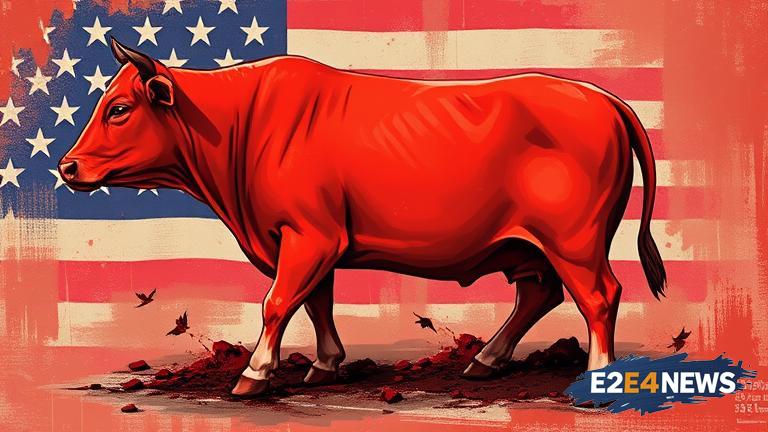The US beef ban, which was imposed due to concerns over mad cow disease, has been lifted after a lengthy period. The decision has been met with a mix of relief and skepticism, with some arguing that the timing is too coincidental to be ignored. The ban was put in place to protect consumers from the risk of contaminated beef, but with the risk now deemed to be low, the US has been given the green light to resume exports. However, the fact that the ban has been lifted just as the US is seeking to strengthen trade ties with other countries has raised suspicions about the motivations behind the decision. Some have suggested that the move is a calculated attempt to boost the US economy and increase its influence in the global market. Others have argued that the decision is a genuine attempt to reflect the current scientific understanding of the risk posed by mad cow disease. The US beef industry has welcomed the decision, citing the significant economic benefits that it will bring. However, not everyone is convinced that the decision is in the best interests of consumers. Some have expressed concerns about the potential risks associated with US beef, and have called for greater transparency and scrutiny of the industry. The Australian government has been accused of bowing to pressure from the US, and of prioritizing trade interests over consumer safety. The opposition has seized on the issue, arguing that the government has failed to provide adequate assurances about the safety of US beef. The debate has sparked a wider discussion about the role of trade agreements in shaping food policy, and the need for greater transparency and accountability in the decision-making process. As the US seeks to expand its exports, other countries are watching with interest to see how the situation unfolds. The European Union, which has also imposed restrictions on US beef, is likely to be closely monitoring the situation. The decision to lift the ban has significant implications for the global beef market, and is likely to have far-reaching consequences for consumers, producers, and traders. The US beef industry is expected to experience a significant boost, with exports predicted to increase substantially. However, the impact on other countries, including Australia, is less clear. Some have argued that the decision will lead to a flood of cheap US beef, which could undercut local producers and damage the domestic industry. Others have suggested that the decision will have a negligible impact, and that the Australian industry is well-placed to compete with US exports. As the situation continues to unfold, one thing is clear: the decision to lift the US beef ban has sparked a heated debate about the priorities of trade policy, and the need for greater transparency and accountability in the decision-making process. The Australian government has defended its decision, citing the scientific evidence and the need to support the US-Australia trade relationship. However, the opposition has vowed to continue to press for greater scrutiny and transparency, and to ensure that consumer safety is prioritized. The issue is likely to remain a contentious one, with ongoing debate and discussion about the implications of the decision. In the meantime, consumers are being advised to remain vigilant, and to continue to prioritize food safety and quality. The US beef industry is expected to face ongoing scrutiny, as consumers and regulators seek to ensure that the highest standards are being met. As the global beef market continues to evolve, one thing is clear: the decision to lift the US beef ban has significant implications, and will be closely watched by industry experts, politicians, and consumers alike.
